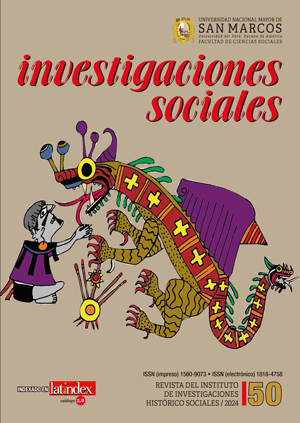Annotations and Historical Ethnography of Piura (1767), and the Yunga Peoples documented by a Spanish Jesuit, Mario Cicala, exiled by King Charles III
DOI:
https://doi.org/10.15381/is.n50.29837Keywords:
Piura, ethnography, Jesuits, indigenous peoples, CicalaAbstract
This study provides a detailed perspective about northern Peru’s colonial history, highlighting local dynamics and the role of religious orders in documenting indigenous cultures. We focus on the work of Mario Cicala, a Jesuit who stayed in Piura in 1767 after being exiled by decree of King Charles III, and carefully documented the geography, social life, and customs of the Yunga people. His writings blend religious mission with ethnographic observation, offering unique insights into the interactions between social structures, religious practices, and eco nomic activities in the 18th century. This study facilitates a deeper understanding on the challenges faced by Piura society at that time, and how these local dynamics intertwined with a broader context of the Spanish colonial rule.
Downloads
Published
Issue
Section
License
Copyright (c) 2025 Pavel Espinoza Ortega, César Espinoza Claudio

This work is licensed under a Creative Commons Attribution 4.0 International License.
AUTHORS RETAIN THEIR RIGHTS:
a. Authors retain their trade mark rights and patent, and also on any process or procedure described in the article.
b. Authors retain their right to share, copy, distribute, perform and publicly communicate their article (eg, to place their article in an institutional repository or publish it in a book), with an acknowledgment of its initial publication in Investigaciones Sociales.
c. Authors retain theirs right to make a subsequent publication of their work, to use the article or any part thereof (eg a compilation of his papers, lecture notes, thesis, or a book), always indicating the source of publication (the originator of the work, journal, volume, number and date).






